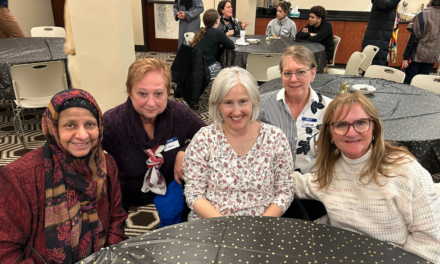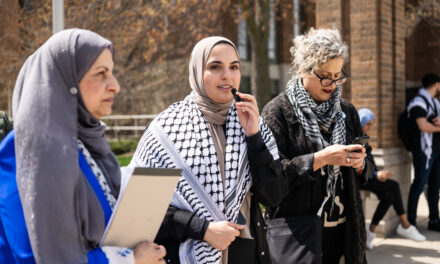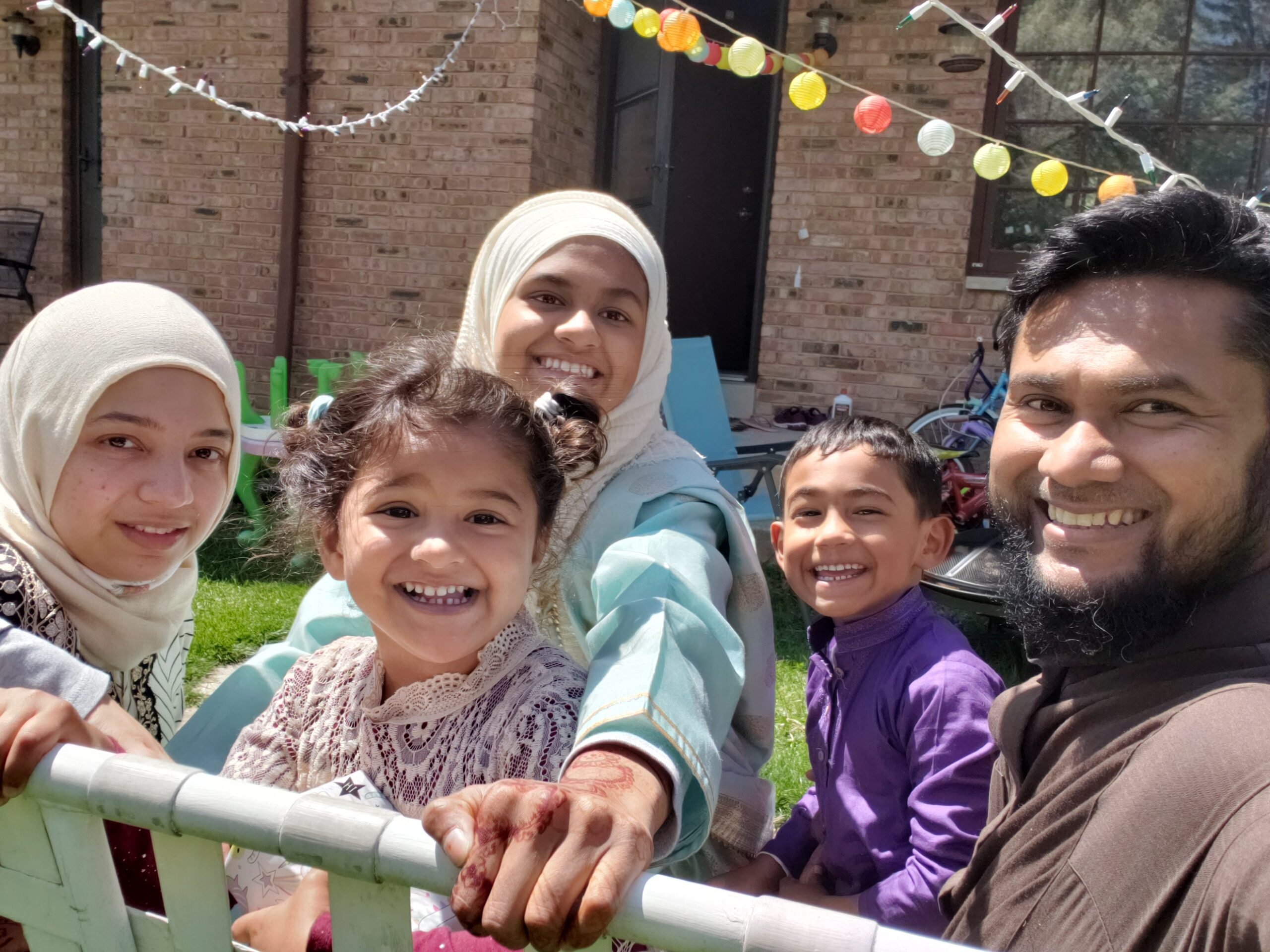
The Khan family, from left to right, Joharah Bayazid, Mymuna Khan, Yusra Khan, Mus’ab Khan and Manzur Khan
While attending business school in Dacca, Bangladesh, Manzur Hassan Khan was intrigued by a new shopping mall that stood nearly empty. It had multiple entrances, plenty of windows and occupied a good location in the country’s capital. He realized that with an anchor tenant, other tenants—and shoppers—would follow.
The ambitious 22-year-old went uninvited to see the CEO of a large local retailer. “He was probably amused,” Khan recalled, but the young man persisted, producing blueprints and plans and finally convincing the retailer to move in. The shopping mall became successful.
Khan told that story to Dr. Ali Siddiqui, one of the investors in his ambitious project in the Milwaukee area, Safari Homes. “Dr. Siddiqui told me, ‘Hey, if you can do something similar again, I’ll be with you.’” That similar something has proven considerably more challenging than convincing a big retailer to move into a mall. Safari Homes plans to build 38 for-sale townhomes on a 4.2-acre site in Franklin, at 3709 W. College Avenue.
Khan has been laying plans and drawing blueprints for two-and-a-half years. Having successfully navigated many steps along the lengthy approval process, Khan hopes to receive the final green light from the City of Franklin on May 21.
Safari Homes is not a typical development scheme with eyes only on profit. Khan’s goal is community building, a task made difficult by the architecture of life in many big cities. He draws inspiration from several sources, starting with his childhood in the suburbs of Rajshashi, Bangladesh.
“I still miss that community. We had one phone for the entire neighborhood and one soccer ball,” he said. “Now, my daughter has five soccer balls and no one to play with”—unless driven to a prearranged outing in a park. Spontaneity is missing. “A community is a group of individuals joined together,” ideally including “all kinds of people of different economic backgrounds and ages,” Khan continued, stressing the importance of growing up in a multigenerational community to the development of empathy. Driving through suburban neighborhoods, he sees children on the driveways, playing by themselves. He finds that saddening.
Another source of inspiration for Khan are the two years he spent in London studying business management. He fondly recalled the city’s good public transportation and the red brick row houses separated by green spaces. Khan’s vision for Safari Homes combines the best elements of his formative experiences in Bangladesh and Great Britain.
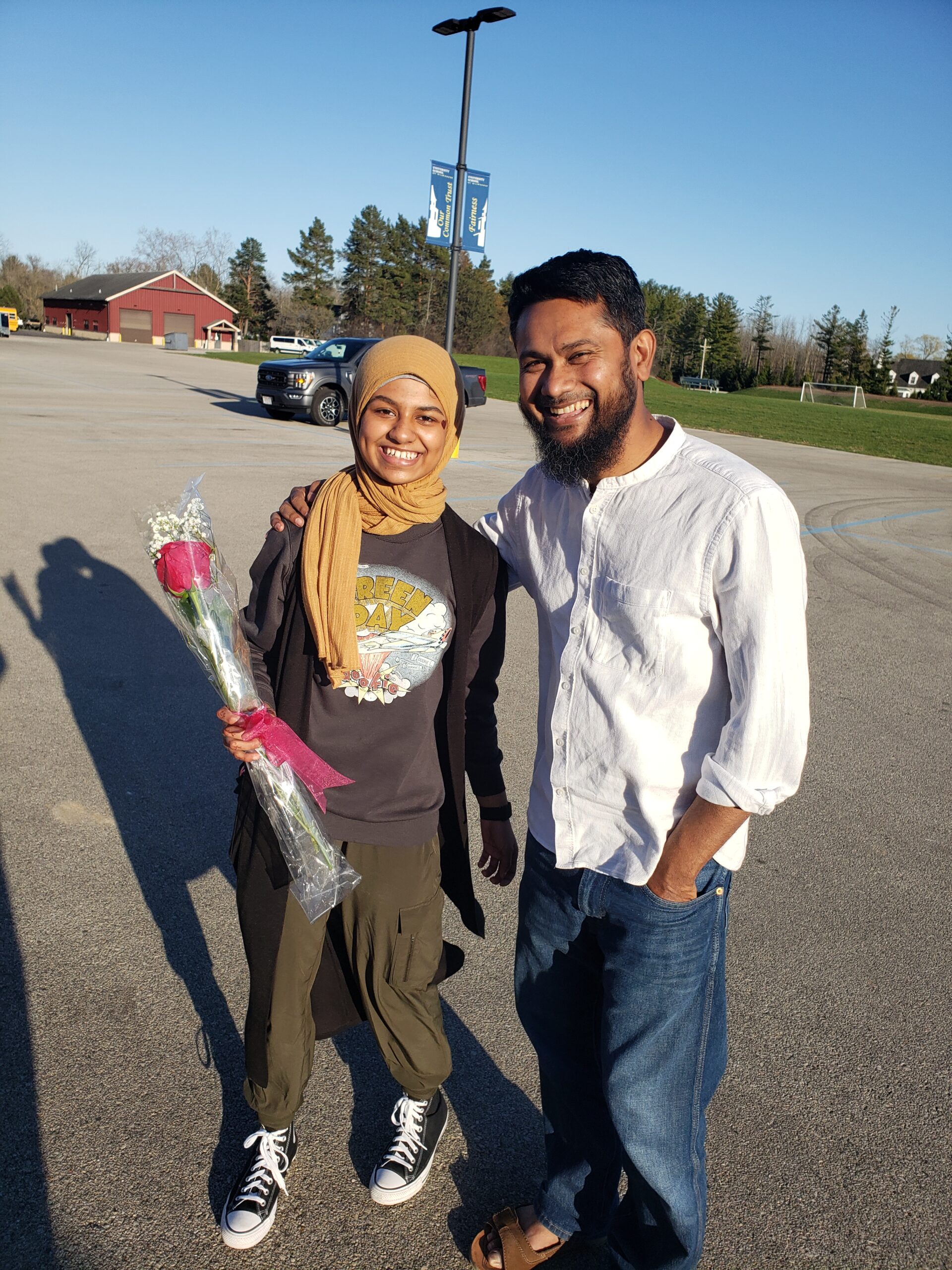
Yusra and Manzur Hassan Khan
In 2009, Khan left London for Milwaukee where his wife (they married several years earlier in Bangladesh) attended the University of Wisconsin-Milwaukee. “I got my dream job here, but I began thinking: ‘How do I give back?’” he said.
Safari Homes’ $14 million development is designed to bring residents together while giving them ample personal space. Each townhome will be soundproof and fireproof, separated by double walls. Stretching behind the row of townhomes will be “a common backyard where children can play together and parents can watch them play,” Khan said. The location for Safari Homes is attractive, adjacent to walking and biking trails and near a small lake suitable for kayaking. Freeway onramps are only five minutes away, and “the Franklin School District is the best,” Khan added.
The townhomes’ final design evolved through the input Khan received while discussing the project with friends, family and Mohamad Khalek of Khalek Building Services, Safari Homes’ contractor. Khan ignored market studies, “which talk about what happened before instead of what could happen,” he explained. The future was very much on his mind as plans unfolded. The townhomes are “zero-energy ready,” easily adaptable for solar panels and the installation of vehicle charging stations. “I listened to the community,” Khan continued.
Among the requests he heard were the need for three bedrooms and a kitchen that could be the center of family life. The trick was to fit a sufficient number of townhomes, each one containing 1,600 square feet of floor space, onto the four-acre site. Once again, Khan found inspiration in his birthplace. “Bangladesh is the size of Wisconsin and has 190 million people,” he said. “There, people take advantage of every inch of space.”
The design for Safari Homes is modern and airy, spacious enough to accommodate a small family. Each townhome will have a one-and-a-half car garage and a driveway where a second car can be parked. Just past the front door are a clothes closet and a half-bathroom, with a short corridor leading to a living room, kitchen and dining room. Up the stairs is a nook on the landing, two bedrooms with a shared bathroom and a master bedroom with its own bathroom, walk-in closet and workspace.
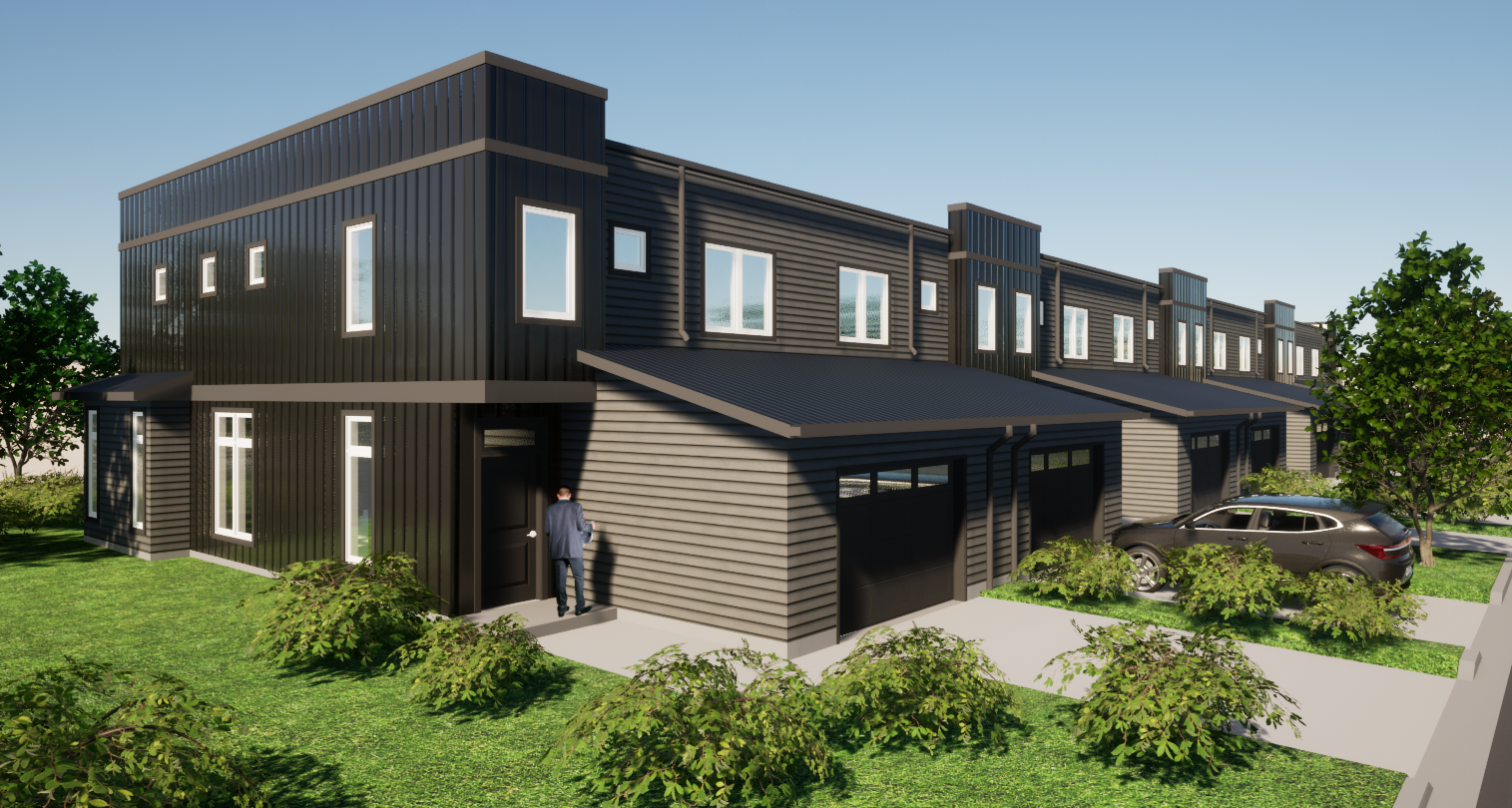
A rendering of the future Safari townhome project on a 4.2-acre site in Franklin, at 3709 W. College Avenue. Spacious enough to accommodate a small family, each home will have 1,600 square feet of floor space.
The number of townhomes planned for Safari Homes, 38, was determined by the need for financial viability as well as the dimensions of the property. According to Khan, he hasn’t sought bank loans but has relied on local investors who share his vision. “The community has come together,” he said. The sense of “emptiness” in contemporary society fueled the vision of drawing a community together around Safari Homes’ model for residential housing and home ownership.
Realizing the need to attract residents of various economic levels, Khan’s goal is to devote 20 percent of the townhomes to “community workers,” including teachers, social workers and first responders. He added that for community workers, he’s “working on a mechanism for buying on an installment plan so that they won’t have to go to a traditional lender.”
Khan presents as an impassioned advocate for a project that erases many of the rules governing residential development. The focus is as much on the people who will live there as on the buildings themselves. “I always tried to understand what I’m doing here—and what I will leave for my children,” he said.
Once Safari Homes receives final approval from the City of Franklin, Khan hopes to begin construction this summer, with the first townhomes ready for sale in the spring of 2025.
